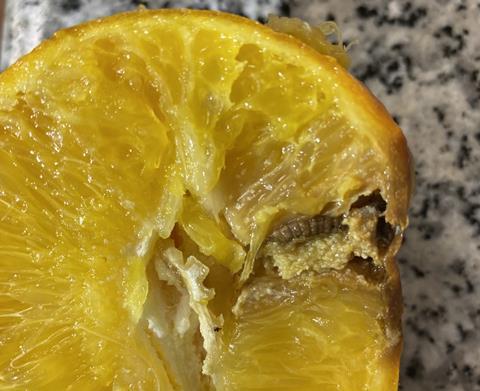Intercitrus asks European Commission to approve the application of cold treatment in crucial vote on Friday
Spain’s citrus lobby has issued a final plea to the European Commission to honour its commitment to bring in new regulations for citrus imports from Sub-Saharan Africa ahead of a crucial vote this week.

On Friday, the session of the European Union’s Standing Committee on Plants, Animals, Food and Feed (ScoPAFF) will vote on whether to back new rules requiring orange imports from countries affected by False Codling Moth (FCM) to be subjected to cold treatment.
The draft resolution has already been approved by EU member states and passed the period of public comment at EU and WTO, but still needs to be ratified and published in the Official Journal of the European Union before it takes effect.
With the first vessels loaded with South African citrus due to depart for Europe within days, Spanish citrus body Intercitrus has warned the European Commission that it could leave itself open to action if it fails to act, since the European Food Safety Authority (EFSA) warned last summer of a high risk the pest will settle in the EU territory unless the treatment is applied.
“EU regulations require the total absence of pests in imports, and the EFSA’s own scientific studies show that only cold treatment can guarantee this to 99.9968 per cent effectiveness,” Intercitrus said in a statement.
“Given the manoeuvres of the South African citrus lobby in Brussels in recent weeks, we therefore urge the Commission to uphold its own criteria.”
Intercitrus president Inmaculada Sanfeliu noted that unless the vote is approved, Europe’s citrus producing nations, led by Spanish Agriculture Minister Luis Planas, would be forced to ramp up political pressure at the next meeting of the Agriculture and Fisheries Council, which takes place on 24 May.
Intercitrus has warned the current situation regarding the entry of foreign pests is unsustainable, with the cost of fighting insects and bacteria such as Cotonet and Xylella fastidiosa running into millions of euros in the region of Valencia alone.
The situation is exacerbated, the interprofessional said, because “the few permitted treatments and biological control systems available are expensive and inefficient”.
Intercitrus claimed Europe is on the verge of suffering “a serious phytosanitary emergency”. It has sent a ‘position paper’ to MEPs and senior officials at the Commission highlighting the threat posed by FCM and other pests and diseases including Citrus Black Spot, Huanglongbing
(HLB) and Oriental fruit fly.



